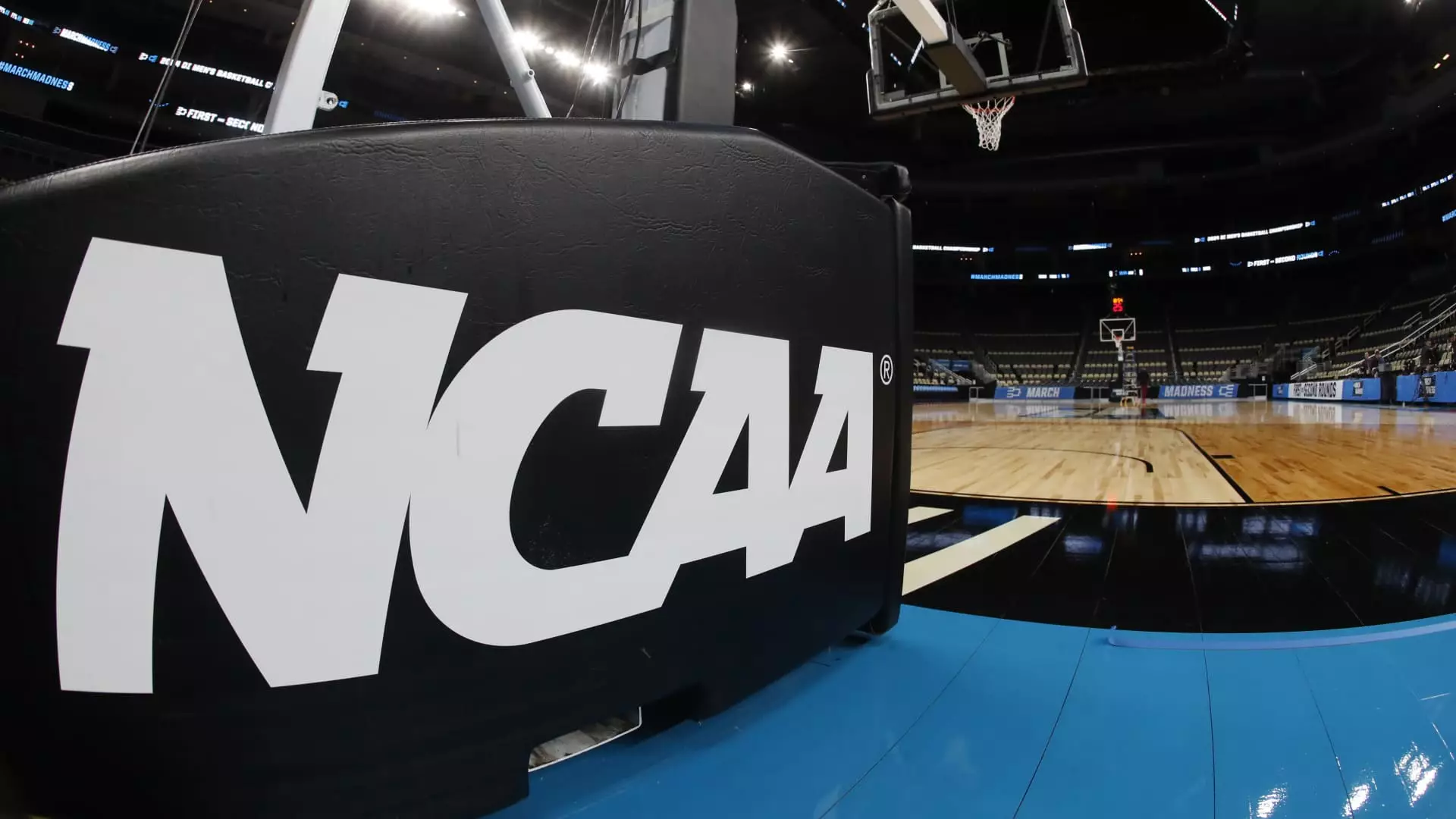In a significant move, the National Collegiate Athletic Association (NCAA) has revised its policy regarding transgender student-athletes, specifically barring trans women from competing in women’s sports. This decision was notably timed, emerging just a day after President Trump enacted an executive order that threatened to strip funding from educational institutions permitting such participation. The NCAA’s latest regulations primarily focus on the biological sex assigned at birth, a stance that has sparked intense debate and concern within both the athletic and broader social communities.
Under the new policy, individuals assigned male at birth can practice with women’s teams and access associated benefits like medical support, yet they are prohibited from participating in formal competitions. Conversely, all individuals are allowed to compete on men’s teams, provided they navigate a medical exemption process if they are undergoing testosterone treatment. Notably, individuals assigned female at birth who are undergoing hormone therapy or taking testosterone are also barred from participating in women’s teams.
In previous years, the NCAA had adopted a more inclusive approach, adhering to the Olympic standards that delegated eligibility decisions to the respective national governing bodies for various sports. This progressive stance, exemplified by its policy update in January 2022, is now transformed into a stringent framework that critics argue undermines the complexities of gender identity.
NCAA President Charlie Baker articulates a belief that uniform eligibility standards across the NCAA’s extensive membership—a conglomerate of over 1,100 colleges and universities enrolling more than half a million student-athletes—would more effectively serve student-athletes compared to the current fragmented state laws and court decisions. This seemingly straightforward rationale frames the NCAA’s adjustments as beneficial; however, it raises questions about the implications for transgender athletes and individual rights.
The alignment of NCAA policy with President Trump’s executive orders reflects a broader societal push by certain political factions to consolidate traditional views on gender. The implications are far-reaching, extending beyond competitive sports into realms of identity and personal rights, evoking strong reactions from advocacy organizations.
Trans rights activist Chris Mosier, a prominent figure in the advocacy for transgender representation in sports, criticized the updated NCAA policy, emphasizing that the classification of athletes based on birth-assigned gender perpetuates a binary understanding of gender. Mosier pointed out the adverse effects of such rigid policies, not only on trans women but also on intersex women and individuals necessitating hormone therapy for medical reasons, such as those with polycystic ovary syndrome.
Moreover, the LGBTQ+ advocacy organization GLAAD condemned the NCAA’s decision, arguing that the policy lacks grounding in scientific, medical, and human rights considerations, which have logically guided previous NCAA decisions. Their assertion speaks volumes about the tension between policy and the nuanced reality of gender identity, urging for a reevaluation of the approach towards inclusivity in athletics.
The recent transformation of NCAA regulations appears more reactionary than based on a comprehensive assessment of the values of equity, diversity, and inclusion. As such, this policy shift must be regarded as part of a larger trend within certain political and social echelons seeking to erase the recognition of diverse gender identities. The sweeping nature of these policies could disenfranchise not only trans athletes but also reinforce a narrative that marginalizes the existence of non-binary individuals.
As the debate unfolds, stakeholders within and beyond athletics must consider the lasting repercussions of such decisions on youth identity development, self-worth, and the future landscape of competitive sports. The NCAA’s recent stance demands urgent scrutiny as it broadcasts a signal about who gets to participate and succeed in the realm of sports, ultimately questioning the foundational tenets of fairness and inclusivity.
The updated NCAA policy regarding transgender athletes exemplifies a critical juncture in the intersection of sports, identity, and politics. This moment calls for thoughtful discourse about the contours of gender identity and the rights of all athletes. The path forward will necessitate balancing inclusivity within competitive frameworks while respecting the evolving narratives surrounding gender and identity. Fostering understanding and embracing diversity will be pivotal to shaping the future of athletics for all student-athletes, regardless of gender identity.

